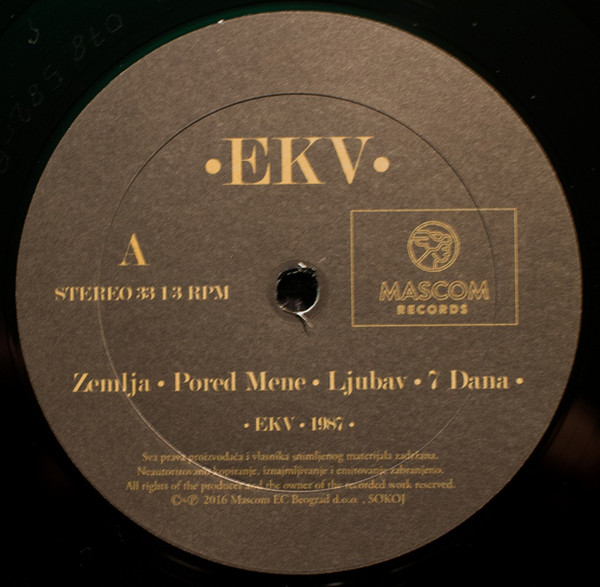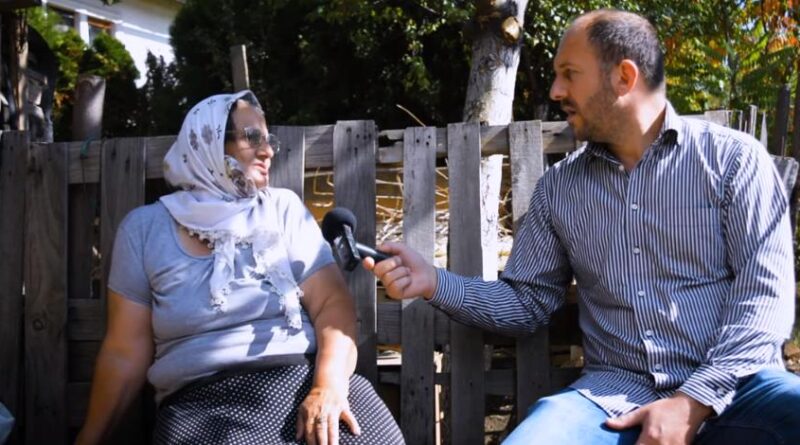
The remaining members continued working as Ekatarina Velika, after Catherine II of Russia, or EKV for short.

Additionally, drummer Vdović left due to drug abuse problems, later joining Du Du A and the band Heroji, being replaced by the former Luna drummer Ivan "Firchie" Fece. Later he collaborated with Vlada Divljan before moving to the United States where he has been residing ever since. However, since Mihajlović claimed rights to the "Katarina II" name, he forced the band into using another one. Mihajlović also ran afoul of the law - a transgression that got him a jail stint - and after serving the punishment got informed by the rest of the band he was no longer a Katarina II member.

Soon after their debut album, the band went through more lineup changes amid disagreements and personality clashes between Mladenović and Mihajlović. In a 1985 interview Mladenović complained about the album's poor sound quality, as well as what he felt to be lack of support from the label. Though it got good reviews, receiving praise for successfully linking Mladenović's descriptive lyrical sensibility with the energetic new wave sound on tracks like "Aut" ("Out"), "Jesen" ("Autumn"), "Radostan dan" ("A Joyful Day"), "Treba da se čisti" ("It Ought To Be Cleaned"), "Ja znam" ("I Know"), Katarina II album was not a commercial success. Only 3,000 copies of the album were released, indicative of label's low commercial expectations. Mostly featuring Mladenović's lyrics, except for the Mihajlović-written tracks "Vrt" ("The Garden") and "Platforme" ("The Platforms"), while the music was a collaboration between the two, the material was produced by Đorđe Petrović featuring guest appearances by Mario Čelik on congas and Film member Jurij "Kuzma Videosex" Novoselić on saxophone. Katarina II's eponymous debut album was thus released in 1984 by RTV Ljubljana's in-house record label ZKP RTLJ. The following year, the band took the offer from fellow musician and RTV Ljubljana's musical director Srđan Marjanović of re-recording their debut album material in the state-owned media company's studios.

The recording sessions for the material were completed in Enco Lesić's Druga Maca studio, however, the material was unusable due to a variety of reasons, most of them having to do with the studio's inferior technical equipment. Their material for the debut album material was recorded soon after, featuring guest appearance by actor Svetislav Goncić on tin whistles. In spring 1983, the band took part in Zagreb Biennale, receiving positive reviews. At the same time, in early 1983, Bojan Pečar (former VIA Talas bassist) joined on bass. The vacant drummer position was filled by Branko "Mango" Kuštrin (formerly of Grupa I), but after he left within a month, Milan's former bandmate from Šarlo Akrobata Ivan "VD" Vdović became the new drummer. Shortly after, the rhythm section left with Radomirović joining Du Du A and Dejanović going over to heated rivals Disciplina Kičme. Rounding out Katarina II's inaugural lineup were Dušan Dejanović (another former Limunovo Drvo member) on drums and Zoran "Švaba" Radomirović on bass guitar.ĭuring late 1982, after their performance at the Topčiderska zvezda cinema, the band was joined by the 23-year-old classically trained pianist Margita Stefanović.

Playing music together again after being bandmates a few years earlier at Limunovo Drvo, Mladenović and Mihajlović decided to name their new band Katarina II after Mihajlović's unrequited love - a girl named Katarina. In February 1982, following the disbandment of Šarlo Akrobata, 24-year-old guitarist and vocalist Milan Mladenović decided to form a new band with an old friend - 22-year-old guitarist Gagi Mihajlović. History Post-punk years (1982–1986) Katarina II The group's core consisted of singer and guitarist Milan Mladenović, keyboardist Margita Stefanović and bassist Bojan Pečar, with other members mostly remaining for comparatively shorter periods. Initially called Katarina II ( Serbian Cyrillic: Катарина II, English: Catherine II), the band had built up a devoted following that greatly intensified and expanded after the death of its frontman Milan Mladenović in 1994, which caused the band to dissolve. Post-punk, alternative rock, art rock, neo-psychedelia, rock, gothic rockĮkatarina Velika ( Serbian Cyrillic: Екатарина Велика, English: Catherine the Great), sometimes referred to as EKV for short, was a Serbian rock band from Belgrade, being one of the most successful and influential Yugoslav music acts. EKV in 1986: Milan Mladenović, Ivan Ranković, Bojan Pečar, and Margita Stefanović.


 0 kommentar(er)
0 kommentar(er)
